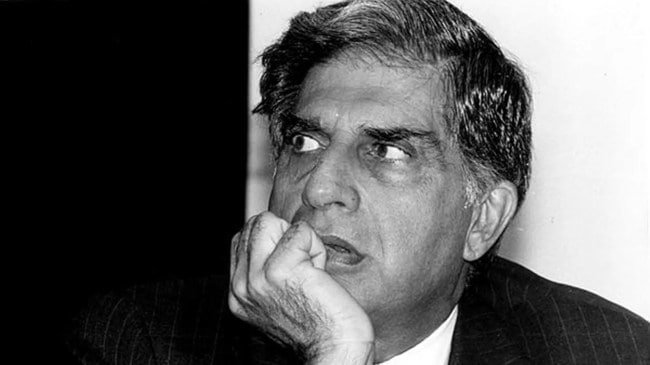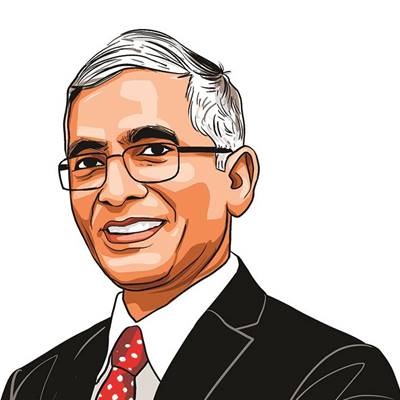Opinion Ratan Tata’s transformational contribution to Swachh Bharat Mission
While Ratan Tata understood the importance of access to sanitation and its impact on the security and dignity of women and girls along with the health benefits for children, his quick decision to walk the talk and commit significant financial resources to the programme was game-changing
 Ratan Tata
Ratan Tata Among the numerous stories being written about Ratan Tata, I thought I would share a lesser-known interest of his — sanitation — and how he made a significant contribution to the Swachh Bharat Mission (SBM), Prime Minister Narendra Modi’s flagship programme, which has just celebrated 10 years of successful implementation. I was then, during 2016-2020, the secretary in the Ministry of Drinking Water and Sanitation, responsible for implementing the programme.
We realised early that changing the entrenched behaviour of open defecation practised by millions in rural India was going to be challenging. The PM’s vision was that of a jan andolan, communities understanding the importance of sanitation and taking the responsibility of making their villages open defecation-free (ODF). With several hundred districts in the country and about six lakh villages, this was going to be a gargantuan task. Of course, the PM always thinks and acts big.
After studying the situation, my team and I realised that an effective way of triggering a change in behaviour was to have trained boots on the ground at two levels — one, young professionals placed at the district level and trained in behaviour change communication to advise district authorities and also supervise and guide village activities and two, swachhagrahis (village motivators), at the village level to directly interact with individual households on sanitation. While the swachhagrahis were being satisfactorily recruited by district authorities, we were struggling to recruit young professionals at the district level.
Enter the Tata Trusts and Ratan Tata. The PM during one of his Mann Ki Baat radio addresses, made an appeal to corporates and other organisations to voluntarily support the SBM by providing young professionals. The Tata Trusts immediately responded by asking how they could help. I was asked to go to Mumbai and make a presentation to theirboard headed by Ratan Tata. We had estimated that we would need to place one young professional in about six hundred districts across the country. I had prepared a cost estimate and a deployment plan for our proposal.
Rata Tata was courteous at the presentation but still, along with his fellow board members, asked tough questions. One of them related to the Tata Trusts’ previous unsuccessful experience of parachuting young professionals into rural India without adequate onboarding, lack of support by the district machinery and, crucially, lack of personal attention by the perennially busy district collector. I managed to convince him that this government was committed to delivering results on the ground and that the young professionals would first be onboarded and trained by us at the ministry and deployed in the states after coordinating closely with states and districts.
After some back and forth at the meeting, my proposal was approved by him. He also graciously accepted our invitation to come to Delhi for the launch of the programme, which he did along with my minister. Just before the formal launch event, we had a proud moment when he came to our office and had an informal interaction with my team. He was even kind enough to praise our coffee.
While the Tata Trusts took on the task of recruiting approximately 600 young professionals, appropriately named Zila Swachh Bharat Preraks or ZSBPs, the ministry had the equally onerous responsibility of managing and mentoring this cohort of talented youngsters, many from prestigious management and engineering academic backgrounds. Fortunately, our ministry team, headed by a Joint Secretary, handled this task with aplomb and coordinated closely with states and districts, mentored the ZSBPs in the field, handled their problems with sensitivity, kept their morale high and monitored their outputs.
The young ZSBPs made a big contribution to improving the quality of the SBM by maintaining the focus on behaviour change, supervising village-level swachhagrahis and keeping the village, block and district officials in the loop on progress made on villages becoming ODF. Having access to the district Collector, and requesting for his or her support when required made a big difference.
More than one “batch” of ZSBPs was recruited for us by the Tata Trusts. While Ratan Tata understood the importance of access to sanitation and its impact on the security and dignity of women and girls along with the health benefits for children, his quick decision to walk the talk and commit significant financial resources to the ZSBP programme was game-changing. As highlighted by the PM in his condolence message: “He was at the forefront of championing causes like education, healthcare, sanitation, animal welfare, to name a few”. For us, his support to the Swachh Bharat Mission was transformational.
The writer is former Secretary of the Department of Drinking Water and Sanitation, Government of India and is currently India’s Executive Director at the World Bank. Views are personal






